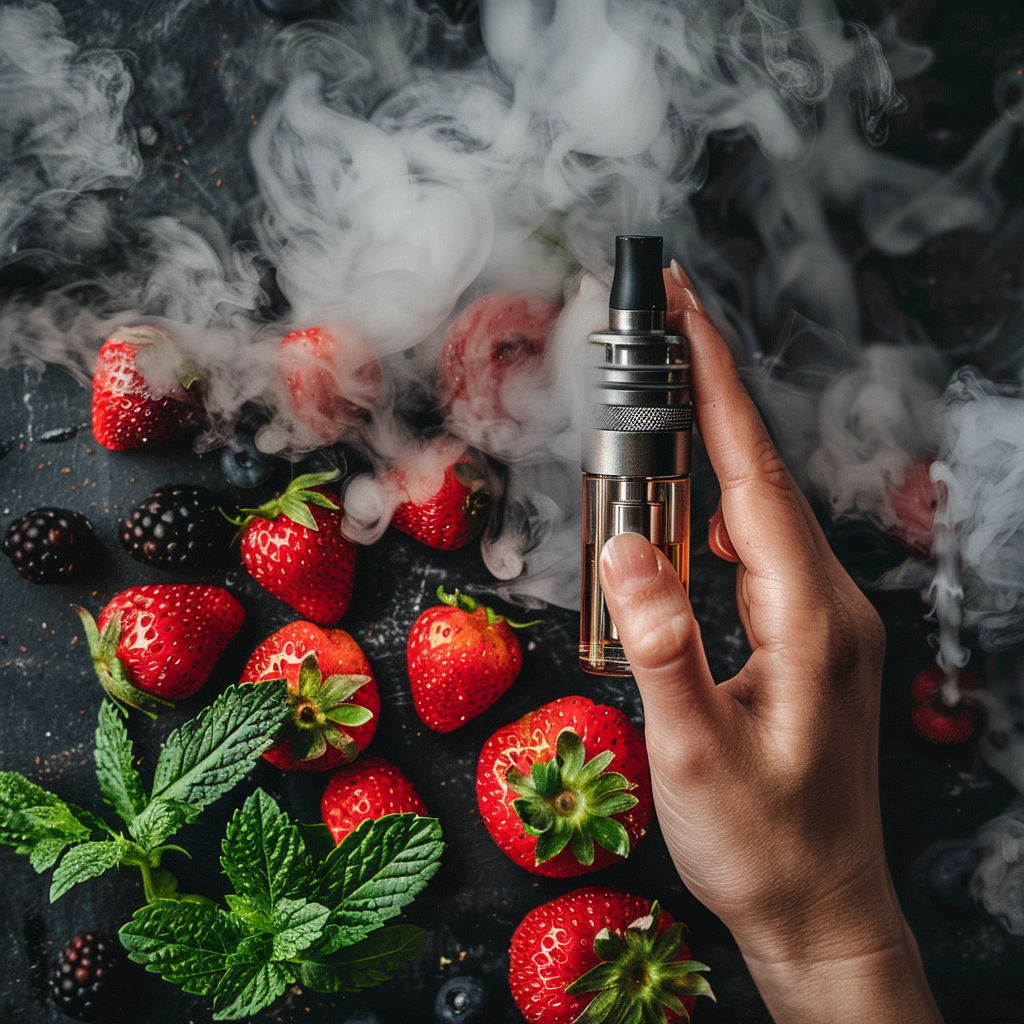
Introduction
In a recent pivotal study on flavoured vapes by the Royal College of Surgeons in Ireland (RCSI), published in the journal *Scientific Reports*, new findings regarding the chemical composition of e-liquids in vaping devices have stirred the pot in the ongoing conversation about the safety and regulation of vapes. The lead author of this research emphasises the urgent need for a “comprehensive” approach to the regulation of flavoured vapes, pointing to the discovery of potentially harmful substances when these e-liquids are heated for inhalation.
Understanding the Research into flavoured vapes
The study meticulously analyses the chemical reactions occurring within flavoured vapes and vaping devices, particularly focusing on flavoured e-liquids, a popular choice among users, especially the younger demographic. The results indicate that the process of heating these liquids to create an inhalable aerosol can produce undesirable chemical byproducts.
These substances, some of which are known to be harmful to human health, are not present in the e-liquids before heating. This critical finding suggests that consumers may not be fully aware of what they are inhaling, and thus, are unknowingly exposed to potential health risks.
The Need for Regulation
This landmark study underscores a significant gap in the existing regulatory framework concerning vaping products. Currently, regulations primarily focus on nicotine content and packaging, with less emphasis on the chemical changes that occur during the actual usage of the devices. The RCSI research strongly advocates for regulations that not only address the contents of the e-liquids but also the chemical composition of the aerosols inhaled by users.
Implications for Public Health
The implications of these findings are profound, particularly in the context of public health and safety. There is a burgeoning need to inform the public about the potential risks associated with vaping, particularly the use of flavoured e-liquids. Comprehensive regulation could lead to stricter controls on the ingredients used in e-liquids and enhanced transparency from manufacturers about the potential risks associated with their products.
Moving Forward
As stakeholders in public health and the legal framework continue to digest the findings of this new research, the call for action becomes increasingly imperative. This includes advocating for legislative changes that ensure all aspects of vaping, from liquid to lung, are thoroughly regulated.
Conclusion
The findings from the Royal College of Surgeons in Ireland present a clear and present call to action for comprehensive regulation of vaping devices, particularly flavoured vapes. It is crucial that this call does not go unheeded. As we move forward, the focus must remain steadfast on protecting public health and ensuring that the breath of law keeps pace with the breath of life.
Call to Action
Stay informed, stay engaged, and support initiatives aimed at protecting our community’s health. Together, we can strive for a regulatory framework that reflects the latest scientific insights and upholds the highest standards of public safety.





